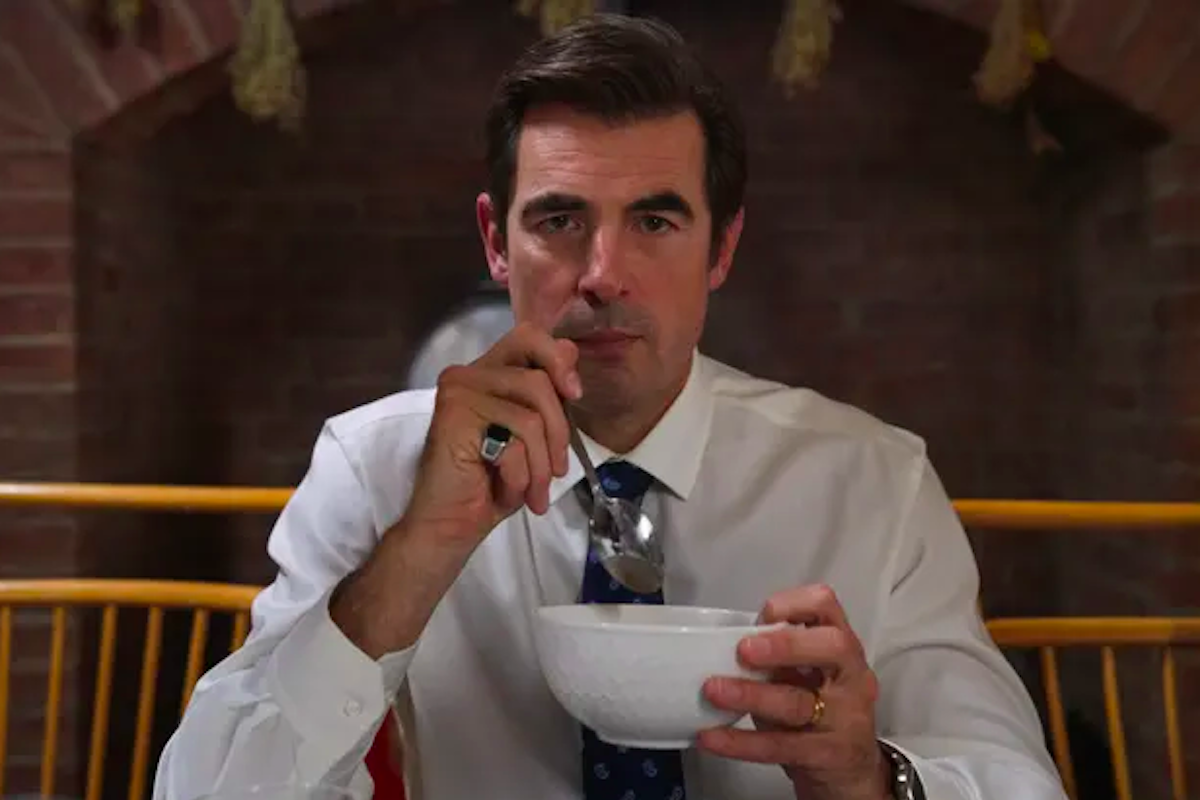If You’re Looking for the Most Punchable Man on TV, He’s Over on Apple TV+

Sharon Horgan’s (Catastrophe) new show, Bad Sisters, is a gripping murder mystery centered on a family of five adult sisters. The show is a master class in character development, as each of the women—as well as the relationships between them—is complex, dynamic, and deeply inhabited. The story itself is darkly hilarious and edge-of-your-seat suspenseful but I’d also be happy to watch these five women go grocery shopping or paint their toenails or do just about anything at all.
In addition to giving us five of the best TV characters of the year, the show also gives us the absolute worst. To be fair, John-Paul (“JP,” played by Claes Bang), the husband of sister Grace (Anne-Marie Duff), is a great character, in that the brilliance of the writing and acting is clear. But as a man we’re forced to sit with through these episodes, having to watch his atrocious actions and hear his horrible words, he is, hands down, The Worst.
As the show goes on, our hatred of JP is more and more justified, but without getting into spoilers, his awfulness is on display from the very beginning. He’s rude and petty to his sisters-in-law. He’s cruel to his neighbor, a meek but extremely kind man who’s friends with Grace. He exclusively refers to his wife by the dehumanizing, desexualizing pet name “Mammy.” Every time he says the word—which is a LOT—it’s like nails on a chalkboard.
The emotional abuse JP subjects Grace to is disturbingly realistic in how insidious it is. We never get to see Grace pre-JP but it’s achingly clear that who she is now is a much smaller version of a different woman. Her husband has spent years belittling her, berating her, controlling her every move and even thought, all while convincing her that everything he does is to make her better. She does not even see herself as an autonomous person but only an infantalized extension of him, through his eyes. And on the rare occasion that he shows her a bit of genuine affection, the next moment he will inevitably say or do something so casually cruel as to dropkick her heart while her guard is down.
It is not a spoiler to say that JP dies—the series opens the day of his funeral and bounces between flashbacks and the present, as insurance agents launch an investigation into his death to avoid having to issue a payout. Throughout the series, we see JP almost die a number of times before finally figuring out the whodunnit, and every time he came close to death but escaped, I found myself yelling at my television and punching pillows in extreme frustration. (The payoff, at least, is so satisfying.)
That, I suppose, is a great testament to how brilliantly crafted this character’s utter awfulness is. I’ve literally had dreams about punching him. This is a character, and a show, that will stick with you.
(image: Apple TV+)
Have a tip we should know? [email protected]
